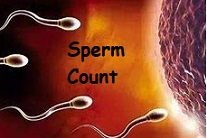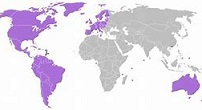Study: Sperm Count Dropped 50% over the Past Four Decades
Date:2019-09-24 click:0
Human Reproduction Update magazine published a team of international scientists on sperm counts in Western men. The study found that sperm count in Western men has fallen by more than half in the past 40 years.

A team led by Dr. Hagai Levine of the Hebrew University of Jerusalem looked at thousands of studies and then analyzed 185 studies conducted between 1973 and 2011. During this period, nearly 43,000 male participants from developed countries, including New Zealand, Australia, and Europe and the United States, provided sperm samples.
Selected research samples require 40 years of time span and evenly distributed in 50 different countries to ensure the scientific nature of research samples. The study included information on fertility status, age, sexual abstinence time, semen collection methods, sperm counting methods, and geographical location.
Scientists determine sperm count by looking at semen samples under a microscope. They measured the amount of sperm in each milliliter of liquid to determine sperm concentration, and then multiplied the measured sperm concentration by the total volume of semen to get the total number of sperm.
The final results show that the sperm concentration of men living in industrialized Western countries dropped from 99 million per milliliter in 1973 to 47.1 million per milliliter in 2011, a total decrease of 52.4%, an annual equivalent decrease of 1.4%, and a 59% decrease in the total sperm count. In contrast, the researchers found that there was no significant decrease in sperm count and sperm concentration in men in South America, Asia, and Africa.

Dr. Levine pointed out that his research was in line with the findings published in 1992 by Elizabeth Carlsson, a Danish reproductive biologist. The study concluded that during the 50 years from 1941 to 1991, the number and volume of male semen decreased.
Sonya Lunder, a senior analyst at nonprofit organizations, points out that men's sperm secretes every day. The influence of chemicals in the surrounding environment on male sperm can also be regarded as a judgment index to judge the health level of men and the degree of environmental pollution.
Lunder cites Russ Hauser, a professor of reproductive physiology at Harvard University School of Public Health, who believes that men's poor sperm quality may be related to endocrine-disrupting chemicals, but also points out that the decline in male sperm quality and sperm quantity is the result of multiple factors.
At the same time, many experts believe that poor health in developed countries is an important reason for the reduction of male sperm count. Lack of physical labor, obesity, stress, and the uncertain effects of artificial compounds in the environment and food on the body are all likely to be responsible for the decline in sperm count.

Hagai Levine said the findings were alarming and reminded us that it was time to study the causes of sperm loss. Now we are dealing with male fertility decline mainly through in vitro fertilization, rather than trying to figure out the root causes of sperm loss. Another co-author, Shanna Swan, said the most frightening thing was that the decline was not gradual, but significant and sustained.
There are more health problems associated with sperm depletion. Men with low sperm concentration are at greater risk than normal men. Studies have shown that sperm depletion may be associated with testicular cancer, heart disease, and premature aging. The number of sperm is less than 20 million, which can be regarded as oligospermia. Not only will it cause reproductive system damage, but also infertility in severe cases. With proper treatment, sperm count and sperm motility were improved.
Oligospermia is often caused by chemical reagents, smoking, obesity, or life pressure, but also by genital tract inflammation. If a patient is found to have Mycoplasma prostatitis, Chlamydia prostatitis or orchitis, seminal vesiculitis, hemospermia and so on, and thorough treatment is needed. With the vigorous development of traditional Chinese medicine, more and more people realize the advantages of it in the treatment of male infertility.

For example, the herbal medicine Diuretic and Anti-inflammatory Pill treatment effect are very significant, and it can sterilize and diminish inflammation, promote blood circulation, and remove blood stasis. Therefore, it can cure diseases and effectively improve the reduction of sperm count, and will not have any side effects on the human body and cause drug resistance.



